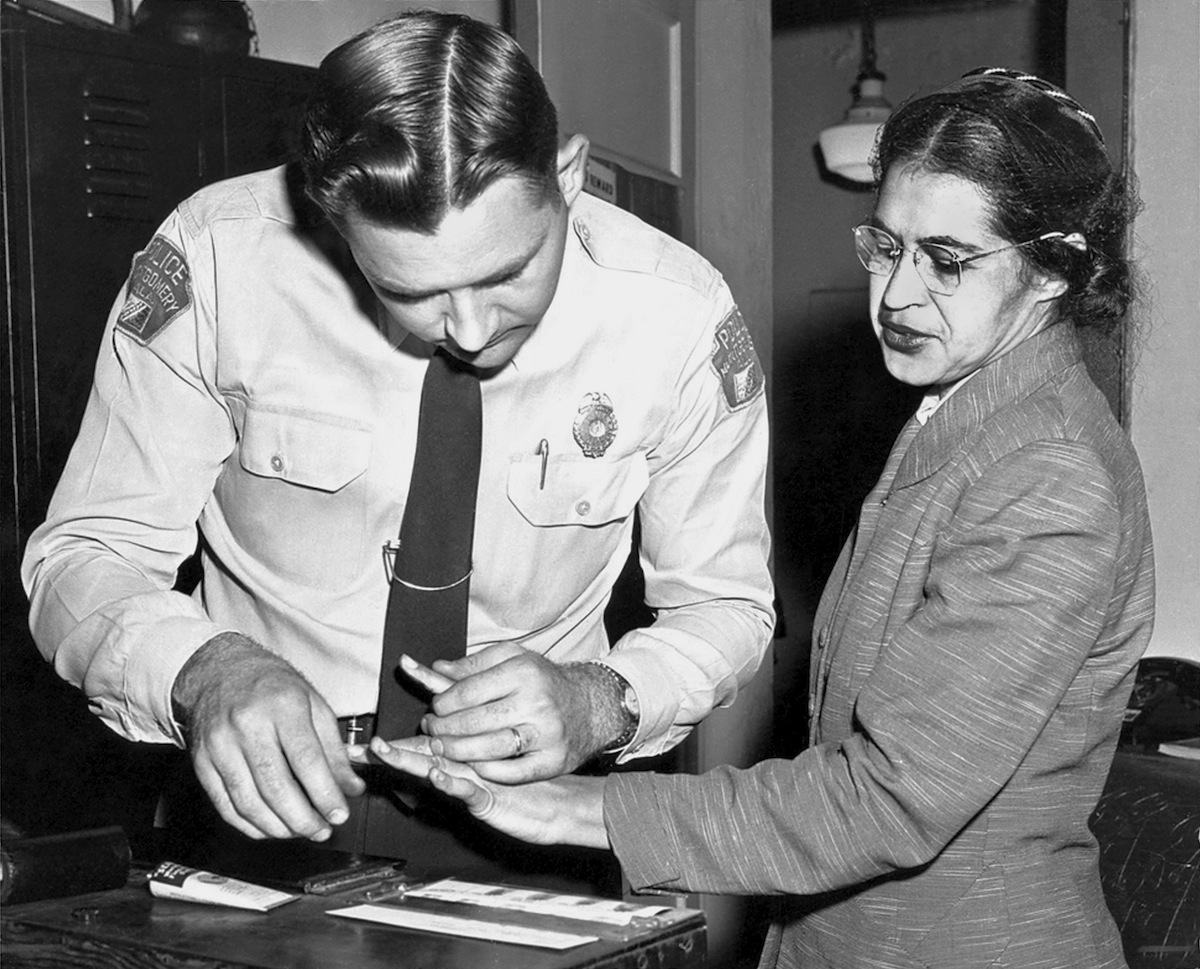
On this day nearly six decades ago, Rosa Parks got on that fateful bus.
As TIME would recount in including Dec. 1, 1955, in its list of days that changed the world, she was on her way to a meeting at her local N.A.A.C.P. about protesting segregation laws when it happened: “she found a seat in the first row of the “colored” section in the back. But after a few stops, the driver ordered her to get up so a white passenger could sit down. Parks refused, and the police were called to take her to jail.” Her ordeal would soon inspire a citywide boycott and a ruling that such segregation was illegal.
When Parks died in 2005, the Rev. Jesse L. Jackson Sr. wrote an appreciation of her life. As Jackson pointed out, the idea that she didn’t move just because she was tired is a myth:
With quiet courage and nonnegotiable dignity, Rosa Parks was an activist and a freedom fighter who transformed a nation and confirmed a notion that ordinary people can have an extraordinary effect on the world. In her declining health, I would often visit Mrs. Parks, and once asked her the most basic question: Why did you do it? She said the inspiration for her Dignity Day in 1955 occurred three months prior, when African-American Emmett Till’s murdered and disfigured body was publicly displayed for the world to see. “When I thought about Emmett Till,” she told me, “I could not go to the back of the bus.” Her feet never ached.
Read the rest of Jackson’s remembrance of Parks, here in the TIME Vault
More Must-Reads From TIME
- The 100 Most Influential People of 2024
- The Revolution of Yulia Navalnaya
- 6 Compliments That Land Every Time
- Stop Looking for Your Forever Home
- If You're Dating Right Now , You're Brave: Column
- The AI That Could Heal a Divided Internet
- Fallout Is a Brilliant Model for the Future of Video Game Adaptations
- Want Weekly Recs on What to Watch, Read, and More? Sign Up for Worth Your Time
Write to Lily Rothman at lily.rothman@time.com